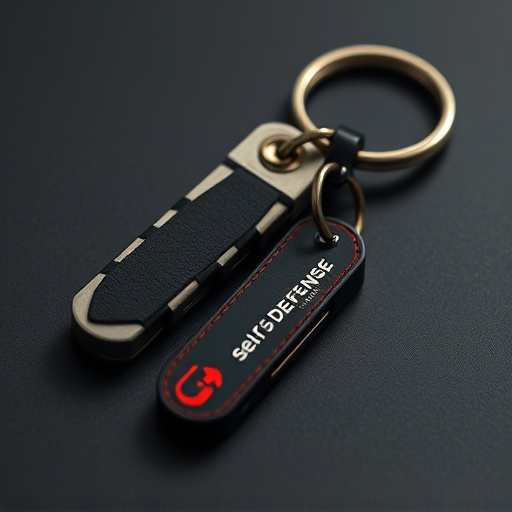The legality of self-defense keychains varies globally due to differing Legal Self Defense Keychain Regulations. Consumers must understand local rules covering device type, blade length, age limits, registration, carrying locations, and more before purchase. Misunderstanding these regulations can lead to legal repercussions. Responsible use requires researching and adhering to specific laws governing these compact self-defense tools.
In today’s world, personal safety is paramount, leading many to invest in legal self-defense keychains. However, navigating the intricate web of keychain safety device legal requirements can be daunting. This article serves as a comprehensive guide, delving into the crucial aspects of legal self-defense keychain regulations. We explore variations across jurisdictions, essential components for compliance, and what consumers need to know to ensure both safety and legality. Understanding these key factors is vital for responsible marketing, consumer protection, and effective self-defense.
- Understanding Legal Self-Defense Keychain Regulations
- – Definition and scope of legal self-defense keychains
- – Variations in regulations across different jurisdictions
Understanding Legal Self-Defense Keychain Regulations
The legal landscape surrounding self-defense keychain devices varies significantly across jurisdictions, making it crucial for consumers to understand the regulations in their region before purchasing one. These tiny gadgets, often marketed as a means of personal safety, fall under specific legal frameworks that govern weapons and self-defense tools. Many countries have stringent rules regarding the type of self-defense devices allowed, with some prohibiting any sharp or potent weapon that could cause serious harm.
Keychain safety devices, while compact and easily accessible, must adhere to local laws. This includes restrictions on the length and sharpness of the blade, as well as age limitations for ownership. Some regions require registration or licensing for certain self-defense tools, and there might be specific rules around where and how they can be carried. Staying informed about these Legal Self-Defense Keychain Regulations is essential to ensure compliance with the law and avoid any potential legal repercussions.
– Definition and scope of legal self-defense keychains
Legal self-defense keychains are a type of specialized device designed for personal safety, often in the form of a small, portable tool attached to a keychain. These devices typically offer functions like sharp edges, spiky surfaces, or other mechanisms intended to deter or incapacitate an attacker when faced with an emergency situation. The scope of legal self-defense keychains encompasses various tools that fall under specific regulations aimed at balancing personal safety and public safety concerns.
The Legal Self Defense Keychain Regulations vary by jurisdiction, reflecting differing societal values and priorities. In general, these regulations consider factors such as the potential for misuse, the level of force justified in self-defense scenarios, and the impact on non-target individuals or property. Understanding these legal requirements is crucial when considering the use or possession of a keychain designed for self-defense to ensure compliance with local laws and avoid any adverse consequences.
– Variations in regulations across different jurisdictions
The legal status and regulations surrounding keychain safety devices, often marketed as self-defense tools, vary significantly across different jurisdictions. What may be considered a legitimate self-defense instrument in one country could be subject to strict controls or even illegal in another. This is primarily due to differing interpretations of personal safety laws and the unique legal frameworks that govern weapons possession and use. For instance, some regions have stringent regulations on any device that can cause injury, while others might have more relaxed rules, especially when the keychain is designed for non-lethal self-defense purposes.
When considering a keychain as a means of legal self-defense, it’s crucial to research the specific laws in your area. These regulations often dictate factors such as the type of force allowed, the circumstances under which such devices can be carried, and any restrictions on their advertising and sale. Staying informed about these variations in keychain safety device regulations ensures compliance with local laws, thereby avoiding potential legal repercussions.
When considering a keychain safety device, it’s crucial to understand the legal landscape surrounding Legal Self Defense Keychain Regulations. The definition and scope of these devices vary across different jurisdictions, with regulations designed to balance personal safety and public safety concerns. Before purchasing, ensure you’re aware of local laws to make an informed decision that complies with your area’s specific requirements.
